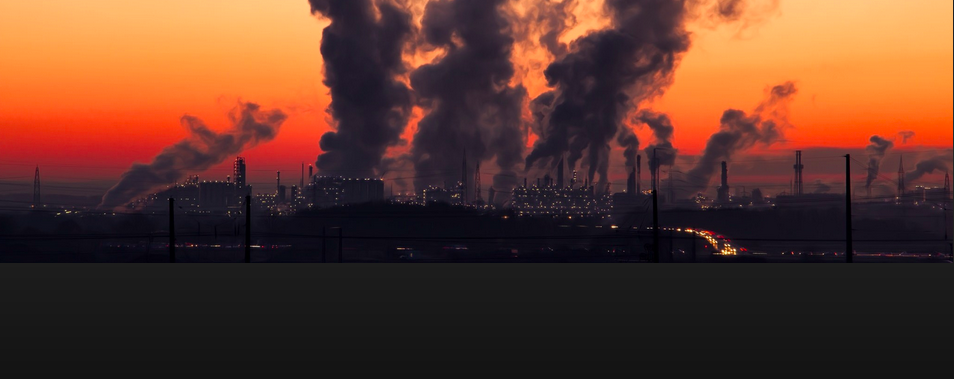Never Forget Climate Breakdown
But Let’s Remember Air Pollution
Climate breakdown is increasingly called “existential,” suggesting our very existence is at stake. Which it is. By continuing to rely on fossil fuels we are driving our entire planet into a very dangerous place, especially as we approach 2100. It is global and long lasting.
Air pollution typically is more localized and limited in space and often in time. Sometimes it is an industrial plant where day-to-day operations spew out toxic substances that affect a neighborhood over a span of decades. Sometimes it is radioactive materials spread by an explosion at a nuclear plant, as at Chernobyl where an area of about 30km of the earth was despoiled for hundreds of years. Sometimes it is an accumulation of exhaust from vehicular traffic and burning of fossil fuels to heat buildings, especially in dense urban areas, or from agriculture.

There is no question that generally the air is less polluted now than it was in several decades after World War II when economic activity grew fast and chemical-based, and toxic, products replaced natural materials, e.g. rubber. The improvements derived largely from the environmental protection laws and regulations, and public support, that developed in the 1970s and 1980s.
But air pollution continues to present wide-spread and serious risks, and they are risks that confront us now, not in 2100. The World Health Organization concluded last year that air pollution is “the single largest environmental threat to human health and well-being.” Appelbaum. Recent studies have demonstrated that even low levels of air pollution are debilitating and even deadly, especially from cardiovascular and respiratory diseases. “A study of the health records of 68.5 million Medicare recipients … found that regular exposure to low levels of air pollution significantly increased the chances of an early death.” Appelbaum. Other research discovered that in the early days of the COVID pandemic Americans had fewer heart attacks because, in large part, they were inhaling less air pollution.
Of course, burning fossil fuels is behind both climate breakdown and air pollution. We can actually walk and chew gum at the same time, so why not deal with air pollution at the same time that we deal with climate breakdown.
One advantage of dealing with environmental risks as an air pollution problem, rather than as climate breakdown, is that the air pollution can be sold as a direct, current threat. Yes we are seeing some impacts from climate breakdown affecting us now, as with increases in numbers and intensity of extreme weather events, but much of what is so scary is the distant impact in 2100.
Many have suggested treating impacts from climate breakdown as health problems, and that makes sense. But talking about air pollution as a health problem is more natural. Air pollution began as a health problem and remains one. And in the US the legal ground for regulating air pollution is firmer that regulating climate emissions.
If we can reduce or eliminate fossil-fuel particulate emissions under the authority of “air pollution” regulation, rather than as greenhouse gas emissions, why not embrace it. A recent poll of public attitudes of 23,577 adults aged 16-74 in 31 countries found that “concerns about climate change” were in 8th place, behind “not having enough money”, fears of terrorism and threat of crime. First on the list was “your health and your family’s health.” Inman.
Sources:
Binyamin Appelbaum, “Enough About Climate Change. Air Pollution Is Killing Us Now, “ The New York Times (20 April 2022).
Gary Fuller, “Law needs to protect UK from spring air pollution increase,” The Guardian (22 April 2022). bit.ly/3OBvlGU via @guardian
EEA, Europe’s air quality status 2022, in Commentary section of current (May 2022) issue of www.irishenvironment.com
Phillip Inman, “The key to winning the climate debate isn’t economics: it’s health,” The Guardian (23 April 2022). bit.ly/36Rxq0e


No comments yet, add your own below